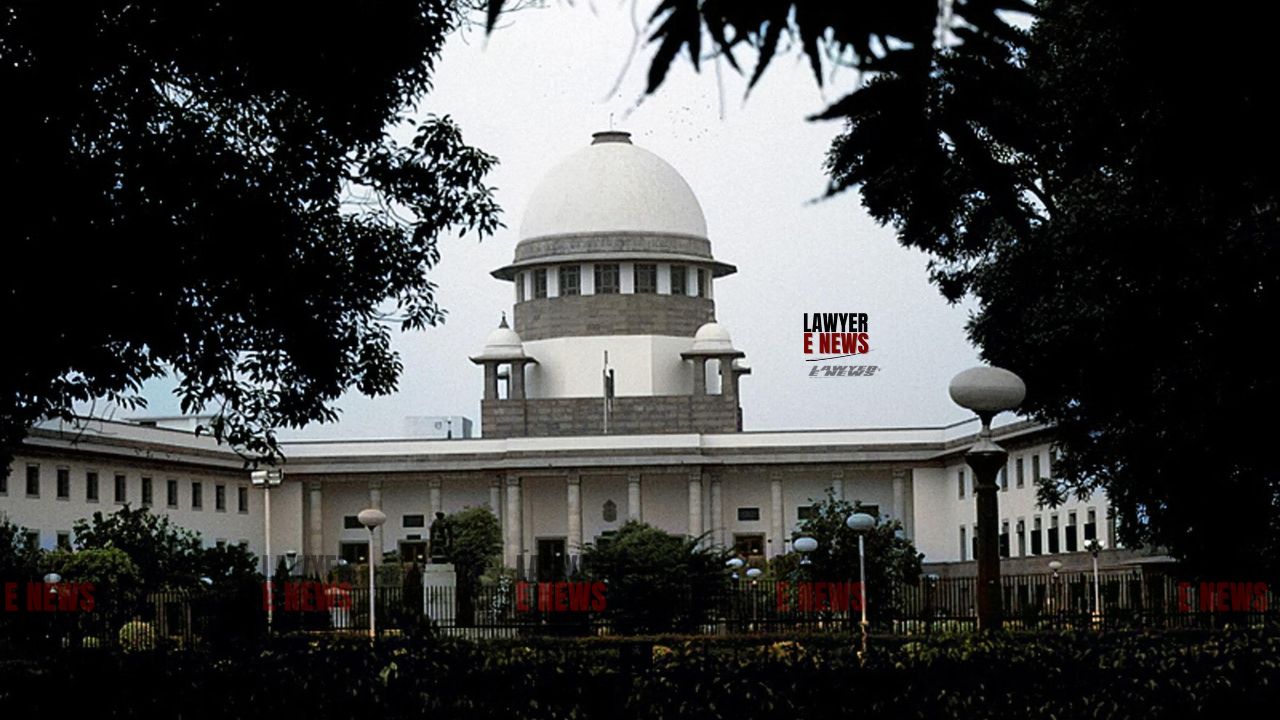-
by Admin
15 February 2026 5:35 AM



The Supreme Court of India has quashed criminal proceedings against Mulakala Malleshwara Rao and another in a dowry-related case, overturning a Telangana High Court decision. The court ruled that the complainant, the father of a divorced woman, lacked the legal standing to initiate proceedings for the recovery of his daughter's 'stridhan'. The judgment, delivered by Justices J.K. Maheshwari and Sanjay Karol, reaffirmed the legal principle that a woman's 'stridhan' is her absolute property, which even her father cannot claim or recover without her explicit authorization.
The case originated from a complaint filed by Padala Veerabhadra Rao, the father of Padala Sujana Sheela Kumar, against her former in-laws. The complaint alleged that the gold ornaments (stridhan) given to his daughter at the time of her marriage in 1999 were not returned by the in-laws after the couple's divorce in 2016. The marriage, which took place in 1999, ended after 16 years, and the divorce was granted by mutual consent in the United States. Despite a separation agreement that settled all financial and material issues, the father filed an FIR in 2021, five years after the divorce, alleging criminal breach of trust under Section 406 IPC.
The Supreme Court emphasized that under Hindu law, 'stridhan' is the exclusive property of the woman, and she retains absolute control over it. Citing landmark cases like Pratibha Rani v. Suraj Kumar and Rashmi Kumar v. Mahesh Kumar Bhada, the court underscored that neither the husband nor the father has any rights over a woman's 'stridhan'. The court pointed out that the father, in this case, had no legal authority to file the complaint without his daughter's explicit authorization, which was absent.
The court noted the significant delay in filing the FIR—over 20 years after the marriage and five years post-divorce—highlighting that such delay was unexplained and raised doubts about the genuineness of the complaint. The court stressed that criminal proceedings cannot be used as a tool for personal vendetta, referencing Kishan Singh v. Gurpal Singh, which cautions against using criminal law to settle personal grudges.
The Supreme Court also found that the essential elements required to establish a charge of criminal breach of trust under Section 406 IPC were not present. The court observed that there was no evidence that the stridhan was ever entrusted to the appellants, nor was there any proof that they had misappropriated it. The case, the court concluded, did not meet the legal criteria necessary to substantiate the charges.
The judgment reaffirmed the principle that a woman's stridhan remains her absolute property, which she can manage independently. The court reiterated that any action taken by a third party, such as a father or husband, on behalf of the woman requires her explicit legal authorization. The absence of such authorization in this case rendered the proceedings legally unsustainable.
By quashing the criminal proceedings, the Supreme Court reinforced the legal doctrine surrounding stridhan, emphasizing that it is exclusively the woman's property. The judgment highlights the importance of timely and legally sound actions when dealing with matrimonial disputes and dowry-related complaints. This decision is expected to set a precedent in safeguarding the rights of women over their stridhan and preventing the misuse of criminal proceedings for personal vendettas.
Date of Decision: August 29, 2024
Mulakala Malleshwara Rao & Anr. v. State of Telangana & Anr.
